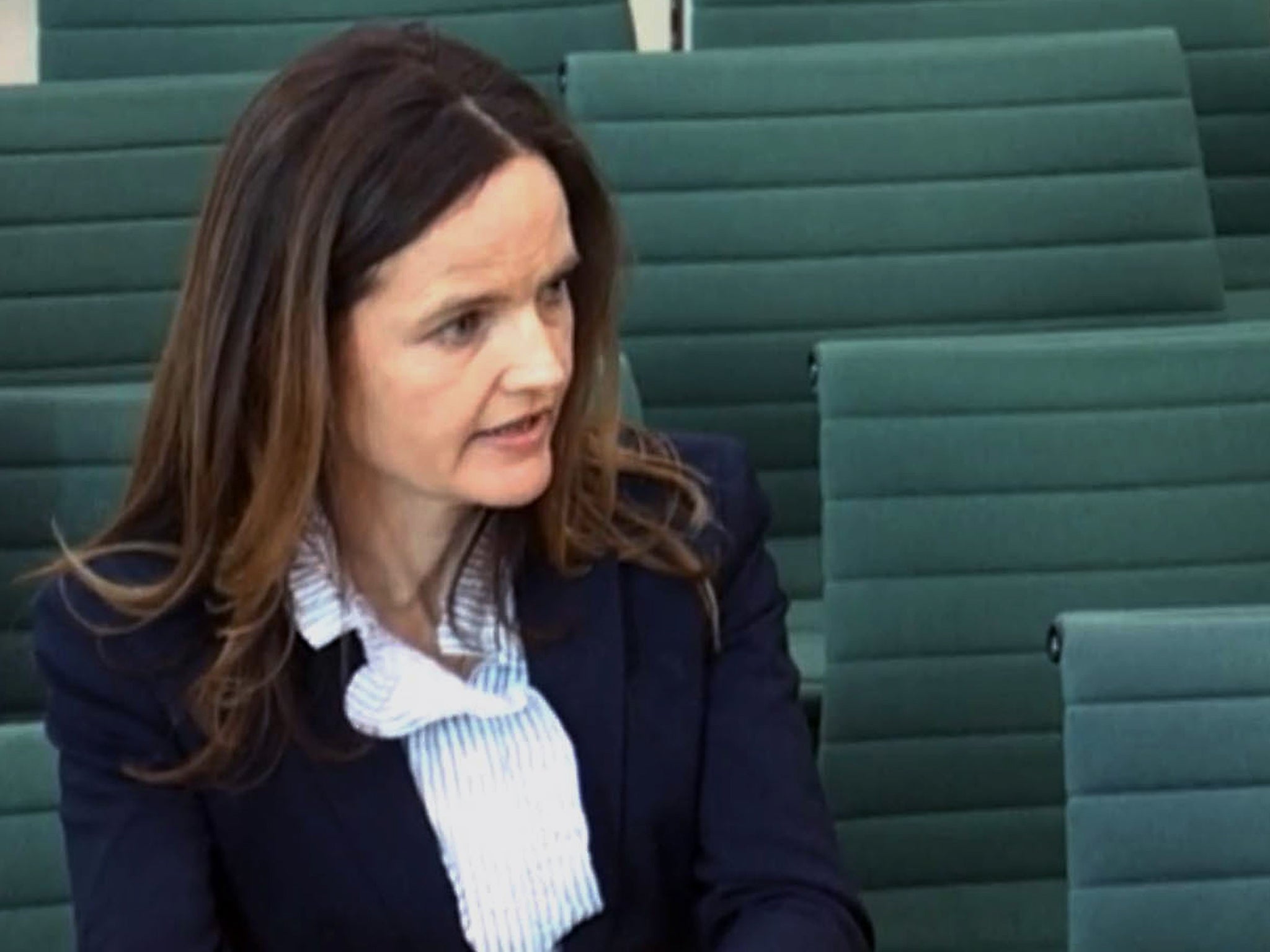Charlotte Hogg resigns as deputy Bank of England governor after scathing criticism from Treasury Select Committee
Earlier this month it emerged that Ms Hogg had failed to formally register with the institution that her brother worked at Barclays

The Bank of England’s new deputy governor, Charlotte Hogg, has resigned after the Treasury Select Committee delivered a scathing assessment of her professional competence.
In a report published on Tuesday the committee said: “The Committee considers that her professional competence falls short of the very high standards required to fulfil the additional responsibilities of deputy governor for market and banking.”
The Bank said Ms Hogg, who has only been in the role since 1 March and had been spoken of in some circles as a possible future governor, had voluntarily offered her resignation.
Mark Carney, the Bank’s Governor, said that he felt “deep regret” that Ms Hogg had chosen to resign and praised her work in overhauling the management of the Bank’s operations in her role as chief operating officer since 2013, a role she combined with her new duties.
Anthony Habgood, chair of the Bank’s Court of Directors (CoD), said that Ms Hogg had made a “huge contribution” to the organisation but that her decision to resign was understandable.
“While Charlotte’s decision by any measure exceeds the standard that would be expected in the private sector or would be required under statute, it is understandable in the circumstances and she has taken it with the best interests of the Bank at heart,” he said.
Earlier this month it emerged that Ms Hogg had failed to formally register with the institution that her brother worked at Barclays.
This was in contravention of the Bank’s code of conduct, under which such potential conflicts of interest must be noted.
Mr Habgood described this as a “very serious breach” to the Treasury Select Committee.
Ms Hogg, in her own evidence to the committee, had said: “I am in compliance with all of our codes of conduct. I know because I helped to write them. I have discussed it with the company secretary.”
This was incorrect and she later wrote to the committee to apologise for inadvertently misleading them.
Mr Carney had issued Ms Hogg with a verbal warning for this oversight and Bradley Fried, deputy chair of the CoD, had described it as not a “hanging offence”.
Yet in its report the Treasury Select Committee argued that Ms Hogg’s letter suggested she had not fully learnt the lessons of her error, prompting their negative conclusion on her professional competence.
In her resignation letter to Mr Carney and Mr Habgood, Ms Hogg said that she had first offered her resignation the previous week but felt she should now “insist”.
“We, as public servants, should not merely meet but exceed the standards we expect of others,” she wrote. “Failure to do so risks undermining the public’s trust in us, something we cannot let happen.”
Private bankers at the weekend had said to the media that they would consider offering “the Hogg defence” if caught by their regulators, including the Bank of England, in a failure to comply with various disclosure requirements.
The Bank said that Ms Hogg would remain in her post for a brief time to help with a transfer of responsibilities and confirmed that she will vote at a meeting this week of the Monetary Policy Committee to set interest rates.
Ms Hogg had planned to maintain her role as chief operating officer alongside her role as deputy governor, making her one of the most powerful figures at the Bank.
But it is expected that the organisation will now appoint two people to take over the responsibilities.
The Treasury is also expected to shortly commence the advertisement and interview process to appoint a new deputy governor.
Ms Hogg had replaced Minouche Shafik as deputy governor for markets and banking, who left the organisation after less than three years in February to become director of the London School of Economics.
Ms Hogg comes from a well-connected family in political, corporate and financial circles. Her father is Viscount Hailsham, a former Cabinet minister in the 1990s. Her mother, Baroness Hogg, is a former chair of 3i Group and is now a non-executive board member of the Financial Conduct Authority.
Her brother Quintin was, until recently, a director of group strategy at Barclays with a responsibility for examining regulatory changes affecting the bank.
The CoD also said Tuesday that it has commissioned a review of internal reporting structures for conflicts of interest by bank employees and the Bank separately said it will “reconfigure reporting lines and internal structures”.
This will involve responsibility for Bank-wide risk management moving from the chief operating officer to the deputy governor for prudential regulation, Sam Woods.
Subscribe to Independent Premium to bookmark this article
Want to bookmark your favourite articles and stories to read or reference later? Start your Independent Premium subscription today.

Join our commenting forum
Join thought-provoking conversations, follow other Independent readers and see their replies